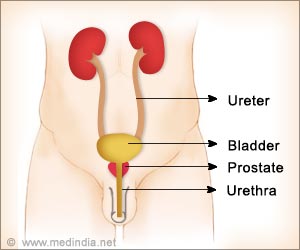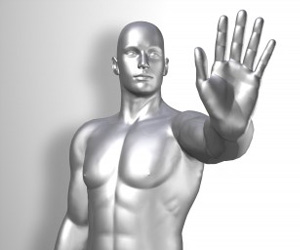- Low Testosterone (Male Hypogonadism) - (https://my.clevelandclinic.org/health/diseases/15603-low-testosterone-male-hypogonadism)
- Testosterone Therapy Improves Erectile Function and Libido in Hypogonadal Men - (https://pmc.ncbi.nlm.nih.gov/articles/PMC5649360/)
- Testosterone deficiency causes penile fibrosis and organic erectile dysfunction in aging men. Evaluating association among Age, TDS and ED - (https://pmc.ncbi.nlm.nih.gov/articles/PMC3499353/)
- On the effects of testosterone on brain behavioral functions - (https://pmc.ncbi.nlm.nih.gov/articles/PMC4330791/)
- Testosterone and Bone Health in Men: A Narrative Review - (https://pubmed.ncbi.nlm.nih.gov/33540526/)
- Examining the Effects of Herbs on Testosterone Concentrations in Men: A Systematic Review - (https://pmc.ncbi.nlm.nih.gov/articles/PMC8166567/)
About
The Testosterone is a vital hormone that plays a key role in muscle building, sex drive, bone density, and overall health. However, when levels drop too low, it can lead to a range of physical, cognitive, and emotional symptoms. Here are eight sneaky signs that your testosterone might be lower than it should be.
What Causes Low Testosterone?
Low testosterone, or hypogonadism, can result from various factors, including natural aging, medical conditions, and lifestyle habits. While testosterone levels naturally decline by about 1% per year after the age of 30, a more significant drop may indicate underlying health issues. Common causes include:
- Chronic illnesses such as type 2 diabetes, metabolic syndrome, kidney disease, and liver dysfunction.
- Obesity, particularly excess visceral fat, which converts testosterone into estrogen, leading to lower T levels.
- Stress and poor sleep, as elevated cortisol from chronic stress and disrupted REM sleep can suppress testosterone production.
- Certain medications, including opioids, corticosteroids, antidepressants, and cancer treatments like chemotherapy and radiation.
- Primary hypogonadism, caused by genetic disorders (e.g., Klinefelter syndrome), testicular injury, or infections like mumps orchitis.
- Secondary hypogonadism, resulting from hypothalamic or pituitary dysfunction due to tumors, brain injury, or hormonal imbalances(1✔ ✔Trusted Source
Low Testosterone (Male Hypogonadism)
Go to source).
Lifestyle choices also play a significant role in testosterone decline. Excessive alcohol consumption can impair liver function and disrupt hormone metabolism, while smoking has been linked to reduced testicular function. A sedentary lifestyle, particularly the absence of strength training and regular physical activity, contributes to declining testosterone over time.
Identifying the root cause through medical evaluation, including blood tests and health assessments, is essential for effective treatment.
8 Signs of Low Testosterone
1. Your Libido Takes a Nosedive
One of the most common signs of low testosterone is a noticeable drop in sexual desire. Men with low T often report fewer sexual fantasies, reduced interest in sex, and even fewer erotic dreams. Testosterone receptors in the brain, particularly in areas like the amygdala, play a crucial role in sexual arousal. When testosterone levels are insufficient, this process can be disrupted, leaving you less interested in intimacy. If you’ve noticed a significant decline in your sex drive, it could be a red flag for low T.
2. Erectile Dysfunction Becomes a Problem
Testosterone is essential for maintaining erectile function. It helps trigger the chemical reactions needed to achieve and sustain an erection. While low T doesn’t always cause erectile dysfunction, it can make it harder to get or maintain an erection. Additionally, some men may notice a decline in the quality of their orgasms. However, erectile dysfunction can also be linked to other health issues like heart disease or diabetes, so it’s important to consult a doctor to rule out other causes(2✔ ✔Trusted Source
Testosterone Therapy Improves Erectile Function and Libido in Hypogonadal Men
Go to source).
3. You Lose Muscle Mass
Testosterone helps your body build and maintain muscle by promoting protein synthesis. When levels drop, your body shifts into a catabolic state, breaking down muscle tissue instead of building it up. You might notice it’s harder to lift weights or that your muscles appear smaller over time. Studies have shown that men with low free testosterone levels are at a higher risk of age-related muscle loss. If you’re struggling to maintain your gains despite consistent workouts, low T could be to blame.
4. Your Penis and Testicles Shrink
Low testosterone can cause the tissues in your penis, scrotum, and testicles to atrophy, leading to a reduction in size. Your testicles may become softer and smaller, and your penis might lose both length and girth. While testosterone replacement therapy can help restore penile size, it won’t reverse testicular shrinkage. If you’ve noticed changes in size or firmness, it’s worth discussing with a healthcare provider(3✔ ✔Trusted Source
Testosterone deficiency causes penile fibrosis and organic erectile dysfunction in aging men. Evaluating association among Age, TDS and ED
Go to source).
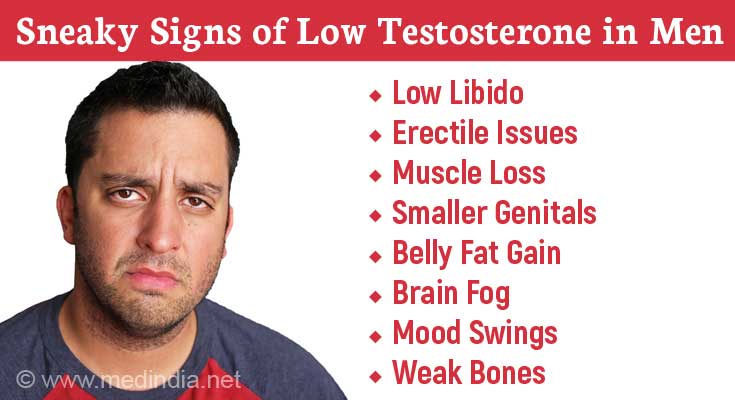
5. You Gain Belly Fat
Low testosterone and weight gain often go hand in hand. Research has shown that men with low T tend to gain visceral fat—the dangerous type that surrounds your organs and increases the risk of heart disease and diabetes. This creates a vicious cycle: low T can reduce your motivation to exercise, leading to weight gain, which in turn can further lower testosterone levels. If you’re struggling to lose belly fat despite diet and exercise, low T might be a factor.
6. You Experience Brain Fog
Testosterone receptors in the brain are crucial for cognitive functions like memory and focus. When testosterone levels are low, you might struggle with brain fog, difficulty concentrating, or memory lapses. This is because the hormone helps keep brain cells functioning optimally. If you’ve been feeling mentally sluggish or forgetful, low T could be a contributing factor(4✔ ✔Trusted Source
On the effects of testosterone on brain behavioral functions
Go to source).
7. Your Mood Takes a Hit
Low testosterone can directly impact your mood, leading to feelings of depression or anxiety. This is partly due to the hormone’s role in regulating brain areas linked to emotional well-being. Additionally, the physical symptoms of low T, such as weight gain or sexual dysfunction, can further contribute to a decline in mental health. If you’ve been feeling unusually down or irritable, it’s worth exploring whether low T is playing a role.
8. Your Bones Weaken
Testosterone plays a key role in maintaining bone density. When levels drop, your bones may break down faster than they can rebuild, increasing the risk of osteoporosis and fractures. This can also lead to a stooped posture and general achiness. Weight-bearing exercises, combined with testosterone replacement therapy, can help improve bone density. If you’ve noticed a decline in your physical strength or posture, low T could be a factor(5✔ ✔Trusted Source
Testosterone and Bone Health in Men: A Narrative Review
Go to source).
How to Balance Testosterone Naturally
Boosting testosterone naturally often starts with simple lifestyle adjustments. Incorporating the following home remedies can help maintain healthy hormone levels:
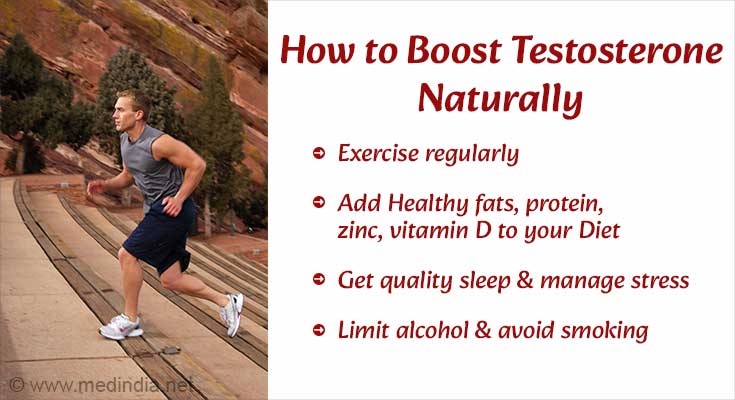
1. Exercise Regularly
- Strength training and resistance exercises, such as weightlifting, are highly effective in boosting testosterone.
- High-Intensity Interval Training (HIIT) can also stimulate hormone production.
- Staying active prevents excess fat accumulation, which can lower testosterone.
2. Eat a Testosterone-Boosting Diet
- Healthy fats (avocados, nuts, olive oil) support hormone synthesis.
- Lean proteins (chicken, eggs, fish) aid muscle growth and testosterone production.
- Zinc and vitamin D-rich foods (oysters, dairy, mushrooms) enhance testosterone levels.
3. Prioritize Quality Sleep and Manage Stress
- Aim for 7-9 hours of deep, uninterrupted sleep each night.
- Avoid screens and caffeine before bed to improve sleep quality.
- High cortisol (the stress hormone) suppresses testosterone production.
- Practices like meditation, deep breathing, and yoga help lower stress.
4. Limit Alcohol and Avoid Smoking
- Excessive alcohol disrupts liver function and hormone metabolism.
- Smoking negatively affects testicular function and reduces testosterone levels.
- Reducing or quitting these habits can help restore hormonal balance.
5. Herbal Supplements (Consult a Doctor First)
- Ashwagandha is known to reduce stress and support testosterone production.
- Fenugreek may enhance testosterone and improve overall vitality.
- Ginger has been linked to increased testosterone levels in some studies(6✔ ✔Trusted Source
Examining the Effects of Herbs on Testosterone Concentrations in Men: A Systematic Review
Go to source).
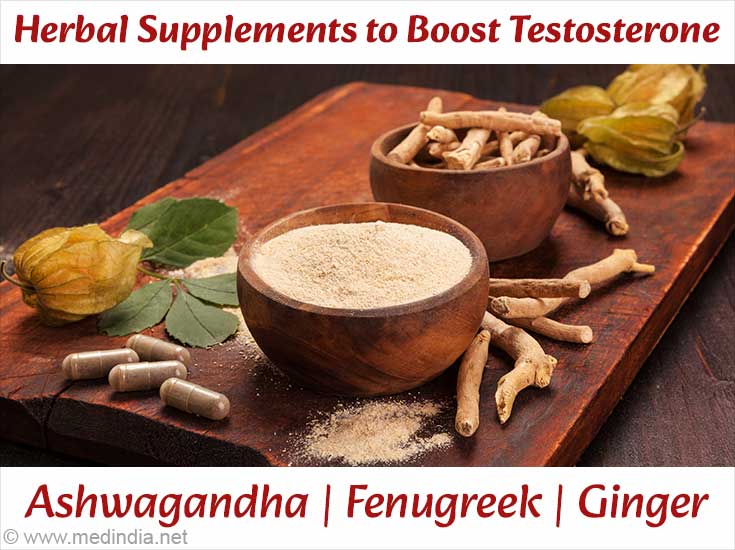
Before starting any ayurvedic supplements it is advisabe to consult a doctor first.
While these home remedies can improve testosterone naturally, severe cases may require medical intervention. If symptoms persist, consult a healthcare professional for personalized guidance.
Low testosterone can affect nearly every aspect of your health, from your physical strength to your mental well-being. Recognizing the signs early and seeking treatment can help you regain your vitality and improve your quality of life. Always consult a healthcare professional to determine the best course of action for your specific situation.



